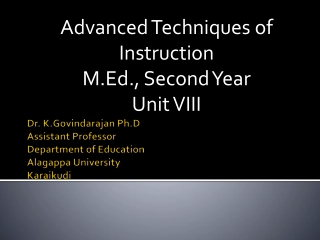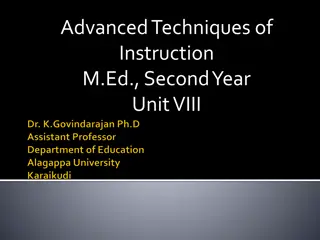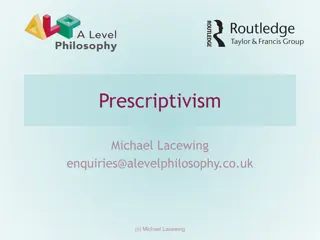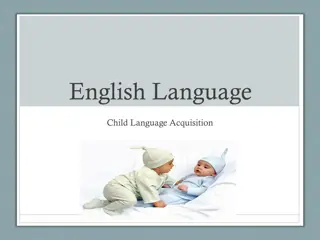Understanding Different Learning Theories and Instructional Approaches
Learning is defined as a lasting change in behavior resulting from experiences. Behaviorism, Cognitivism, and Constructivism are key theories influencing instructional design. Teachers play a crucial role in providing effective learning experiences. Empiricism and Rationalism have historically shape
2 views • 30 slides
Understanding Religious Language: Cognitivism vs. Non-Cognitivism in the University Debate
This discussion explores the debate between cognitivism and non-cognitivism in religious language. Cognitivism asserts that religious claims aim to describe the world and can be true or false, while non-cognitivism argues that such claims express attitudes and cannot be verified. Flew's challenge qu
0 views • 9 slides
Understanding Learning Theories in Instructional Design
Learning is defined as enduring behavior change resulting from experiences. Behaviorism, Cognitivism, and Constructivism are key theories in instructional design. Teachers must cater to learners' needs for effective behavior changes. Empiricism and rationalism have historically influenced epistemolo
0 views • 30 slides
Exploring Moral Judgments and Prescriptive Meaning in Ethics
This content delves into non-cognitivism, Hare’s prescriptivism, and moral anti-realism to understand what we do when making moral judgments. It discusses prescriptive meaning, the concept of good, and how moral language guides actions. The objections raised regarding moral language's functions, p
0 views • 9 slides
Understanding Religious Language: Flew, Hare, Mitchell
Exploring the contrasting views of cognitivism and non-cognitivism in the context of religious language through the perspectives of Flew, Hare, and Mitchell. Delve into Flew's challenge on the undetectable gardener, Hare's concept of bliks, and Mitchell's response to the rationality of religious bel
0 views • 7 slides
Theories of Child Language Acquisition and Speaking Challenges
Children learn to speak through various theories including behaviourism, social interactionism, innatism, and cognitivism. Language acquisition involves imitation, interaction with caretakers, innate language capacity, and cognitive development stages. Learning to speak is considered a complex intel
0 views • 14 slides





